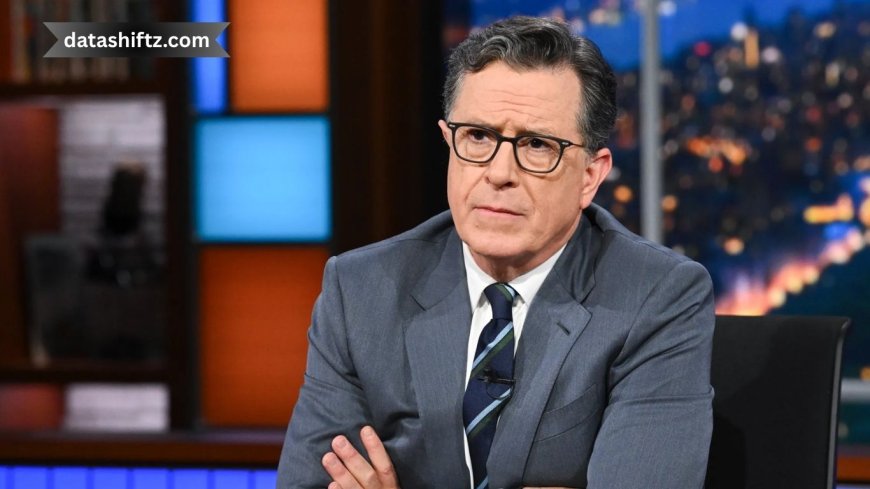Stephen Colbert: End of an Era at The Late Show

On July 17, 2025, Stephen Colbert shocked fans and the late-night world. CBS confirmed that The Late Show with Stephen Colbert will be canceled after its 2025–26 season, with its final episode airing in May 2026. After a decade at the helm of network television’s top-rated late-night slot, Colbert's departure marks not just the end of his tenure—but the retirement of the Late Show franchise itself, which began under David Letterman in 1993.
Why CBS Pulled the Plug
CBS’s statement framed the move as “purely a financial decision against a challenging backdrop in late night,” emphasizing it had nothing to do with ratings or the show's content. The context:
-
A major drop in advertising revenue across late-night networks.
-
Industry-wide trends: audiences migrating to short-form streaming clips, TikTok, and YouTube.
-
Paramount Global’s pending $8.4 billion merger with Skydance Media, prompting cost-cutting decisions.
Colbert’s show still ranked #1 among late-night broadcast slots, averaging around 2.4–2.5 million viewers per night. Yet, despite impressive numbers, CBS executives cited declining profitability. “It is not related in any way to the show’s performance, content or other matters happening at Paramount,” they stressed.
Fallout & Political Controversy
The cancellation sparked immediate backlash—not just from fans but also from high-profile political figures:
Senators Adam Schiff and Elizabeth Warren demanded answers, questioning whether Colbert’s frequent critiques of former President Donald Trump and CBS’s recent $16 million lawsuit settlement played a role. Warren pointed out CBS’s decision came just three days after Colbert labeled the settlement a “big fat bribe”—a barbed critique of his own network.
CBS’s parent Paramount had recently settled with Trump over a disputed 60 Minutes editing matter, raising questions about the company’s impartiality and whether unresolved pressures influenced programming strategy .
Comparison at a Glance
| Factor | Colbert’s Show Status | CBS Decision |
|---|---|---|
| Viewership | ~2.4–2.5 million (top in slot) | Not a deciding factor |
| Profitability | Declining in industry context | Cited as primary reason |
| Corporate backdrop | Critical of Trump & Paramount | Merger with Skydance pressured cuts |
| Political reactions | Support from Dems | Schiff & Warren demand transparency |
What It Means for Late‑Night TV
CBS isn't just pulling Colbert’s show—they’re retiring the entire Late Show franchise after 33 years. In practical terms:
-
CBS schedules for 2025–26: The Late Show stays until May 2026, then the late-night slot is likely to shift toward reruns or alternative programming
-
After Midnight, the 12:30 am successor hosted by Taylor Tomlinson and produced by Colbert’s company, was already canceled earlier in 2025.
-
This trend echoes broader industry-wide shifts: cost-cutting, less original late-night content, and networks losing capacity to sustain large-scale productions.
Meanwhile, rivals are also in flux. ABC’s “Jimmy Kimmel Live!” is ending current contracts, while NBC’s Jimmy Fallon and Seth Meyers are locked in until 2028.
Takeaways from Today’s News
-
Stephen Colbert’s Late Show will conclude in May 2026, ending his decade-long reign.
-
The entire Late Show franchise—initiated by Letterman—will be retired.
-
The cancellation stems from cost cuts in light of industry trends and CBS’s financial pressures—not ratings.
-
Political pressure emerged quickly, with Schiff and Warren probing for hidden motives.
-
After Midnight had already ended in June 2025, leaving CBS late-night devoid of local fare.
-
The move reflects late-night television’s transition toward streaming-first strategies.
What Comes Next?
For Colbert:
-
He has roughly ten months to wrap up the show—setting the stage for a farewell season honoring his crew, guests, and satirical legacy .
-
Post-May 2026? Speculation is mounting: will he pivot to streaming specials, podcasts, or maintain involvement behind the scenes? His production of After Midnight hints at future development roles .
For CBS:
-
The network must fill a prime-late-night gap, either with reruns or reimagined formats that align with tighter budgets.
-
Parent company Paramount-Skydance merger introduces uncertainty: executives may shift focus toward scalable content over traditional TV.
For the Genre:
-
Late-night television is indeed evolving—leaning toward snackable online content or pilot-led streaming, stepping away from 60-minute broadcast blocks.
-
Hosts who can adapt digitally will likely thrive; legacy broadcast fare, however, is shrinking.
Final Thoughts
Stephen Colbert has been an iconic presence in American late-night—blending comedy, culture, and pointed political commentary with finesse and empathy. As CBS retires his show and the Late Show franchise in May 2026, we’ll witness not only the end of a television era but also a pivotal shift in entertainment’s architecture.
For fans, the next year promises a bittersweet farewell full of memorable moments and tributes. For the industry, it signals a redefinition of late-night, emphasizing digital engagement and lean production. Whether this marks a final curtain for Colbert or the start of another chapter—on podcast mic or streaming platform—it’s clear his voice will continue to resonate.





























